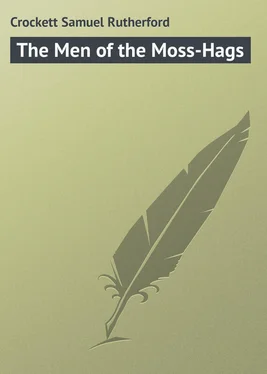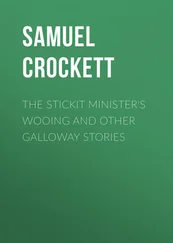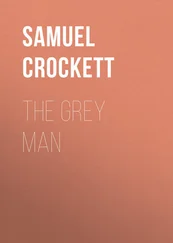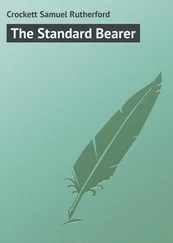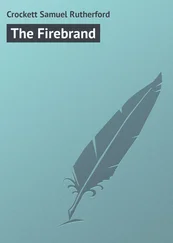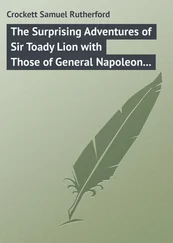Samuel Crockett - The Men of the Moss-Hags
Здесь есть возможность читать онлайн «Samuel Crockett - The Men of the Moss-Hags» — ознакомительный отрывок электронной книги совершенно бесплатно, а после прочтения отрывка купить полную версию. В некоторых случаях можно слушать аудио, скачать через торрент в формате fb2 и присутствует краткое содержание. Жанр: foreign_prose, на английском языке. Описание произведения, (предисловие) а так же отзывы посетителей доступны на портале библиотеки ЛибКат.
- Название:The Men of the Moss-Hags
- Автор:
- Жанр:
- Год:неизвестен
- ISBN:нет данных
- Рейтинг книги:5 / 5. Голосов: 1
-
Избранное:Добавить в избранное
- Отзывы:
-
Ваша оценка:
- 100
- 1
- 2
- 3
- 4
- 5
The Men of the Moss-Hags: краткое содержание, описание и аннотация
Предлагаем к чтению аннотацию, описание, краткое содержание или предисловие (зависит от того, что написал сам автор книги «The Men of the Moss-Hags»). Если вы не нашли необходимую информацию о книге — напишите в комментариях, мы постараемся отыскать её.
The Men of the Moss-Hags — читать онлайн ознакомительный отрывок
Ниже представлен текст книги, разбитый по страницам. Система сохранения места последней прочитанной страницы, позволяет с удобством читать онлайн бесплатно книгу «The Men of the Moss-Hags», без необходимости каждый раз заново искать на чём Вы остановились. Поставьте закладку, и сможете в любой момент перейти на страницу, на которой закончили чтение.
Интервал:
Закладка:
"How do you and the other Peter up the way draw together?" asked my cousin.
The curate snapped his fingers.
"Peter Pearson o' Carsphairn – puir craitur, he's juist fair daft wi' his ridin' an' his schemin'. He will hear a pluff o' pouther gang blaff at his oxter some fine day, that he'll be the waur o'! An' sae I hae telled him mony's the time. But Margate McCaskill's son is neither a Whig hunter nor yet as this daft Peter Pearson. He bides at hame an' minds his glebe. But for a' that I canna control the silly fowk. I was fearin' them the ither day," he went on. "I gied it oot plain frae the pulpit that gin they didna come as far as the kirkyaird at ony rate, I wad tak' no more lees on my conscience for their sakes. I hae plenty o' my ain to gar me fry. 'But,' says I, 'I'll report ye as attendin' the kirk, gin ye walk frae yae door o' the kirk to the ither withoot rinnin'. Nae man can say fairer nor that.'"
"An' what said ye next, Curate?" asked my cousin, for his talk amused us much, and indeed there were few merry things in these sad days.
"Ow," said Peter McCaskill, "I juist e'en said to them, 'Black be your fa'. Ye are a' off to the hills thegither. Hardly a tyke or messan but's awa' to Peden to get her whaulpies named at the Holy Linn! But I declare to ye a', what will happen in this parish. Sorra gin I dinna inform on ye, an' then ye'll be a' eyther shot or hangit before Yule!' That's what I said to them!"
Wat Gordon laughed, and I was fain to follow suit, for it was a common complaint that the curate of Dalry was half a Whig himself. And, indeed, had he not been ever ready to drink a dozen of Clavers's officers under the table, and clout the head of the starkest carle in his troop, it might have gone ill with him more than once.
"But I hae a bit sma' request to make of ye, Walter Gordon o' Lochinvar an' Gordiestoun," said the curate.
"Haste ye," said Wat, "for ye hae taigled us overly long already."
"An' it's this," said the curate, "I hae to ride to Edinburgh toon, there to tell mair lees than I am likely to be sained o' till I am a bishop an' can lee wi' a leecence. But it's the Privy Council's wull, an' sae I maun e'en lee. That tearin' blackguard, Bob Grier, has written to them that I am better affected to the Whigs than to the troopers of Garryhorn, and I am behoved to gang and answer for it."
"Haste ye, then, and ride with us," cried Walter, whose horse had stood long enough. "We ride toward the Nith with Colonel Graham, and after that to Edinburgh."
So in a little the curate was riding stoutly by our side. We were to travel by Dumfries and Lockerbie into Eskdale, whither Claverhouse had preceded us, obeying an urgent call from his acquaintance, Sir James Johnstone of Westerhall, who was still more eager to do the King's will than he – though, to begin with, he had been a Covenant man, and that of some mark too. But the fear of fines, and the bad example of his neighbours ever before his eyes, had brought out the hidden cruelty of the man. So now he rode at Claverhouse's bridle-rein, and the pair of them held black counsel on the state of the country. But the mood of Claverhouse was, at worst, only that of military severity, without heart of ruth or bowels of mercy indeed; but that of Westerhall was rather of roystering and jubilant brutality, both of action and intent.
So we rode and we better rode till we came to Eskdale, where we found Westerhall in his own country. Now I could see by the behaviour of the soldiers as we went, that some of them had small good will to the kind of life they led, for many of them were of the country-side and, as it seemed, were compelled to drive and harry their own kith and kin. This they covered with a mighty affectation of ease, crying oaths and curses hither and thither tempestuously behind their leaders – save only when John Graham rode near by, a thing which more than anything made them hold their peace, lest for discipline's sake he should bid them be silent, with a look that would chill their marrows.
CHAPTER IX.
THROUGH DEATH'S DARK VALE
Now this Eskdale was the Johnstone's own country, and one in which I was noways at home – a country of wide green holms and deep blind "hopes" or hollows among the mountains, where the cloud shadows bide and linger, and whence they come out again to scud swiftly over the hips of the hills. I had been trained to be pleasant and prudent in my conversation, and there was little to take me out of myself in the company I had perforce to keep. Yet I dared not withdraw myself from their train, lest the jealousy of our band, which was latent among the more scurril of them, should break out. So I rode mostly silent, but with a pleased countenance which belied my heart.
Indeed, had it not been for the good liking which everywhere pursued my cousin Lochinvar, I cannot tell what might have come out of the dislike for us "Glenkens Whiggies," which was their mildest word for us. Yet my man Hugh never said a word, for he was a prudent lad and slow of speech; while I, being no man of war, also looked well to my words, and let a wary tongue keep my head. As for John Meiklewood, honest man, he took suddenly one morning what he termed a "sair income in his wame," and leave being scantily asked, he hied him home to his wife and weans at the Mains of Earlstoun.
Now this was the manner of our march. Claverhouse sent his horse scouring up on the tops of the hills and along the higher grounds, while his foot quartered the lower districts, bringing all such as were in any way suspicious to the kirkyards to be examined. Old and young, men and women alike, were taken; and often – chiefly, it is true, behind Claverhouse's back – the soldiers were most cruel at the business, making my blood boil, till I thought that I must fly out and strike some of them. I wondered not any longer that my father had taken to the hill, sick to death of the black terror which Charles's men caused daily to fall upon all around them, wherever in Scotland men cared enough about their religion to suffer for it.
How my cousin Lochinvar stood it I cannot tell. Indeed I think that but for the teaching of his mother, and the presence of John Scarlet, who at this time was a great King's man and of much influence with Wat Gordon, he had been as much incensed as I.
One morning in especial I mind well. It was a Tuesday, and our company was under the command of this Johnstone of Westerha', who of all the clan, being a turncoat, was the cruellest and the worst. For the man was in his own country, and among his own kenned faces, his holders and cottiers – so that the slaughter of them was as easy as killing chickens reared by hand.
And even Claverhouse rather suffered, and shut his eyes to it, than took part in the hard driving.
"Draw your reins here," the Johnstone would say, as we came to the loaning foot of some little white lime-washed house with a reeking lum. "There are some Bible folk here that wad be none the worse o' a bit ca'!"
So he rode up to the poor muirland housie sitting by itself all alone among the red heather. Mostly the folk had marked us come, and often there was no one to be seen, but, as it might be, a bairn or two playing about the green.
Then he would have these poor bits of things gathered up and begin to fear them, or contrariwise to offer them fair things if only they would tell where their parents were, and who were used to come about the house.
There is a place, Shieldhill by name, that sits blithely on the brae-face at the entering in of Annandale. The country thereabouts is not very wild, and there are many cotter houses set about the holms and dotted among the knowes. Westerha' enclosed the whole with a ring of his men, and came upon them as he thought unawares, for he said the place was like a conventicle, and rife with psalm-singers. But he was a wild man when he found the men and women all fled, and only the bairns, as before, feared mostly out of their lives, sitting cowering together by the ingle, or hiding about the byres.
Читать дальшеИнтервал:
Закладка:
Похожие книги на «The Men of the Moss-Hags»
Представляем Вашему вниманию похожие книги на «The Men of the Moss-Hags» списком для выбора. Мы отобрали схожую по названию и смыслу литературу в надежде предоставить читателям больше вариантов отыскать новые, интересные, ещё непрочитанные произведения.
Обсуждение, отзывы о книге «The Men of the Moss-Hags» и просто собственные мнения читателей. Оставьте ваши комментарии, напишите, что Вы думаете о произведении, его смысле или главных героях. Укажите что конкретно понравилось, а что нет, и почему Вы так считаете.
